Overview of the Mechanical Engineering Program
Mechanical engineering is an engineering study with a target on both machines and machine system which is a combined integration of machines. The Mechanical Engineering Program focuses on fundamental-area education such as material mechanics, thermodynamics, fluid mechanics, mechanical dynamics, and automatic control engineering, and implements an educational system for building solid foundations in mechanical engineering. Our philosophy for education is to cultivate capable human resources, thus playing an active role in diverse fields in mechanical engineering. In particular, we aim to cultivate the following human resources:
- Individuals who create diverse machinery and systems to support a contemporary society both comfortable and safe for humans to live with automobiles, aircrafts, robots, energy equipment, and welfare and medical equipment.
- Individuals who create innovative machines to promote a future society, and individuals who develop new technology to solve social problems we currently face, such as energy or environment issues.
Curriculum
Features of the Mechanical Engineering Program
- Emphasis on basic and specialized education such as material mechanics, thermodynamics, fluid mechanics, mechanical dynamics, and automatic control engineering
- Nurture of students as capable human resources to play an active role in diverse fields, who are qualified through systematic education of basic knowledge and skills in mechanical engineering
- Practical and distinctive courses such as Machine Element Design and Drawing, and Mechanical Engineering Laboratory
- The Mechanical Engineering Program (EP) for fostering professionals, which is accredited by JABEE (Japan Accreditation Board for Engineering Education)
Curriculum by year
General and fundamental specialization
- Emphasis on dynamical system specialization and seminars
- Emphasis on mathematics system specialization and seminars
- Humanities and cultural studies to be productive members of society
- Substantial programs of information system specialization and seminars
- Chemistry subjects
- Languages and liberal arts classes
Specialization in mechanical engineering
- Basic subjects in mechanical engineering
- Lectures for advanced specialization learning contents
- Experiments and presentations on specialized fields
- Subjects for internship programs
Graduation research
- Cutting-edge research (refer to the list of research specializations)
Models for a course of study completion
The education program is a system for students to organize an individual model for a learning course of their own in accordance with guidance on academic credits. Samples of models are as follows:
Sample 1 Sample 2 Sample 3
Class scenes with distinctive learning approaches
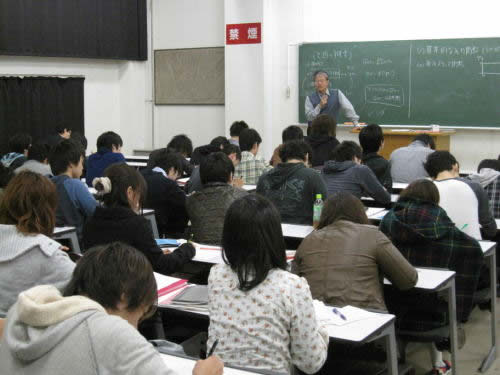
This is a picture of a class conducted in the lecture building. Small-group strategies are employed for laboratory work and seminars with attentive teaching.

Design drawing classes are provided in this room equipped with a CAD (Computer Aided Design) system.(To be updated)

This is a process of creating a technical drawing with the use of a computer.
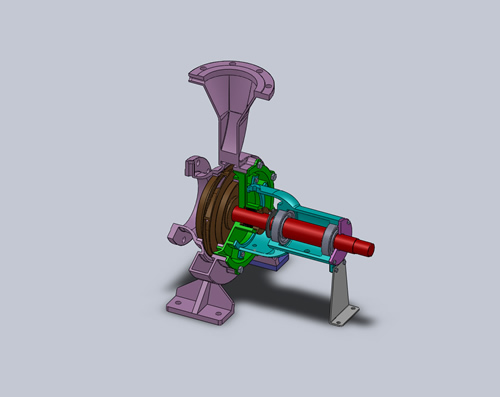

Here is an example of an assignment in a design drawing class (a pump.) Click here for a video.
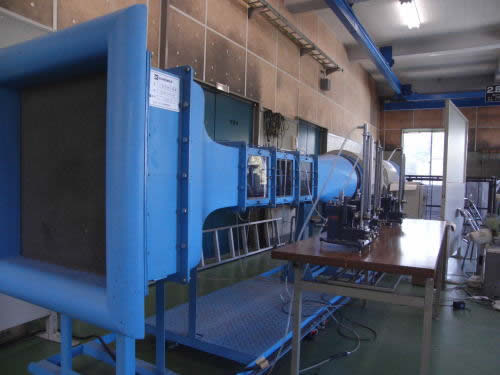
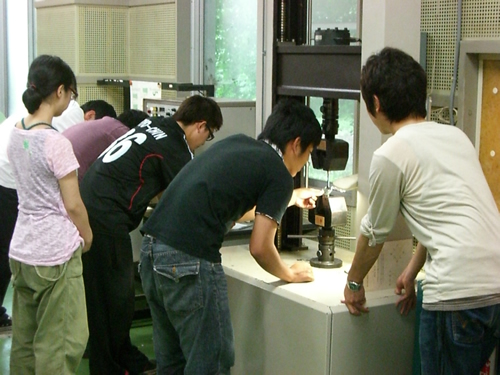

Through small group learning, each individual group has a diverse experimental theme of its own regarding each specialized field in the Mechanical Engineering Education Program. Laboratory research covers a wide range of topics and students are encouraged by teachers and teaching assistants of graduate students. Thus, students in education programs actively engage with the learning materials. This program trains students using diverse exercises to enhance the abilities of presentation and of writing skills for technical documentation.
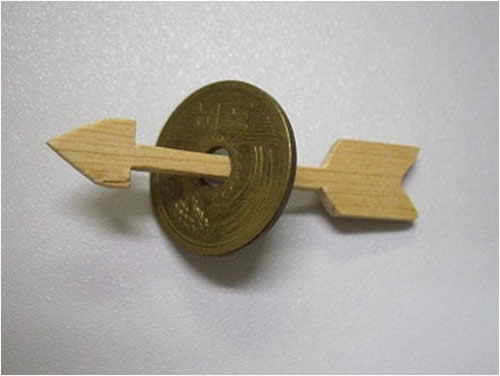
How was the arrow in this picture created? Practical knowledge and skills are cultivated in training courses, such as processing methods and skills using machine tools, welding, and the disassembly and assembly of an engine.

